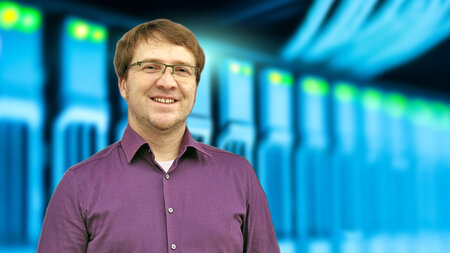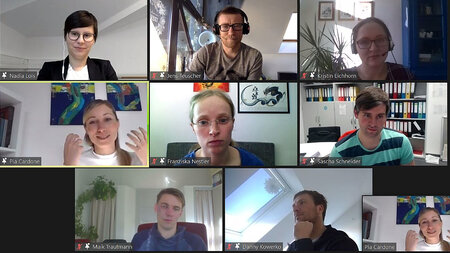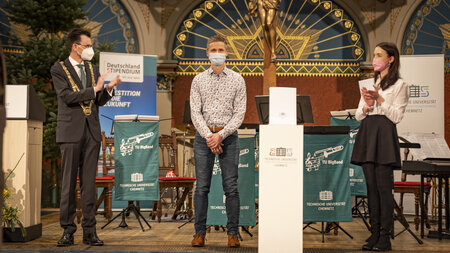Hints
For information on how to prepare, conduct, and process student work (BA, MA, etc.), see the Opal course for scientific writing of student works.
We offer topics in the area of research focus of the Junior Professorship Media Computing. Substantive topics include:
- Intelligent analysis of large multimedia data sets (Big Data)
- Audio processing and audio localization
- Detection and classification of bioacoustic signals
- Multi-camera processing and multi-camera (data) fusion
- Industrial image processing and video analysis
- Hexagonal image processing
- Machine learning
- Time series analysis and prediction
- Computational methods for single molecule microscopy and spectroscopy
- GUI and human-computer interaction
Topics for BA / MA - Thesis and Practical Courses
This is a list of several topics you can work on in your thesis. If you have found a suitable one don´t hesitate to contact us!
In addition, you will find a set of slides with an overview of all topics available for student work at the junior professorship here.
Description:
The task is to develop a deep learning model to classifiy 11 different eye diseases namely Pigmentverklumpung ,Drusen , Ödem,RPE-Atrophie, Fibrose,Gliose,Harte Exsudate,LaKo-Herde,ISNT-Regel,Parapapilläre-Atrophie, Pigmentverschiebung . The dataset comprises of 2000 fundus images comprising of 3 filter channel (Red,Blue,Green) .
Goal:
The goal the research work is 1. Analyse the filter channel combinations, how these filter channels can be fused as a 4D or 6D channel 2. Create a baseline model or use any available deep learning model find a better layer to fuse the channel information inorder to improve the performance of the classification
Scientific field of work:
Image processing, Artificial intelligence
Methods:Deep learning, computer vision, Tensorflow, pytorch etc.
Suitable for the following courses of study:
Masters in Computer science, ASE, embedded systems .
Suitable for the following modules:
Master thesis/ research project
Programming skills:
- Python
Literature:
Contact:
Description:
Design and implementation of different deep learning based approaches to the generation of image encodings utilizing fractal image compression as based on the hexagonal lattice format.
Goal:
The goal of the research project is to realize comparable approaches to fractal image compression within the context of conventional, square and hexagonal imagery as well as their evaluation in terms of the respective benefits such as storage and computation requirements.
Scientific field of work:
Computer Science, Artificial Intelligence, Image Processing, Compression Techniques
Methods:Deep Neural Networks, Partition Schemes, Search Strategies, Encoding and Decoding, etc.
Suitable for the following courses of study:
Master Computer Science / Master Applied Computer Science, Ph.D.
Suitable for the following modules:
Master Thesis / Doctoral Thesis
Programming skills:
- Python or comparable, including libaries such as TensorFlow and Keras, NumPy, etc.
Literature:
[1] Region-Based Fractal Image Compression Using Heuristic Search (https://ieeexplore.ieee.org/document/388086)
[2] A Review of the Fractal Image Coding Literature (https://ieeexplore.ieee.org/document/806618)
Contact:
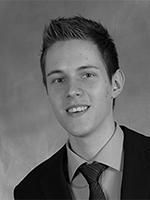
Tobias Schlosser
E-Mail: tobias.schlosser@…
Tel: +49 371 531-30358
Raum: A12.339 (alt: 1/339) (Straße der Nationen 62, Böttcher-Bau)
Description:
Main objective: The data set was recorded after the dicing of a semiconductor wafer, the dicing is done by a powerfull laser that follows a scribed area separating the chips. The research subject is concerned with recognizing if the laser deviated from the scribed area by implementing a single shot multibox detector and training it on the various sub sets of a annotated wafer data Optional: Strategies with synthetic data can be evaluated too for their capability of enhancing the classification accuracy.
Goal:
Comparing the results to other state of the art methods
Scientific field of work:
Visual Inspection, Artificial Intelligence, Image Processing, Data Synthesis, Semiconductor Manufacturing
Methods:Deep Neural Networks, Image Processing
Suitable for the following courses of study:
Angewandte Informatik, Informatik, Data Science
Suitable for the following modules:
Bachelor Thesis, Research Project
Programming skills:
- Advanced Python skills
- Basic knowledge about deep learning frameworks such as Keras, Tensorflow
Literature:
[1] Liu et al., Ssd: Single shot multibox detector, European conference on computer vision, 2016, https://arxiv.org/pdf/1512.02325.pdf
[2] Schlosser, Tobias, et al. "Improving automated visual fault inspection for semiconductor manufacturing using a hybrid multistage system of deep neural networks." Journal of Intelligent Manufacturing 33.4 (2022): 1099-1123.
Contact:
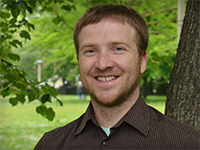
Jun.-Prof. Dr. Danny Kowerko
E-Mail: danny.kowerko@…
Tel: +49 371 531-35660
Raum: A10.274 (alt: 1/274) (Straße der Nationen 62, Böttcher-Bau)
Description:
Lasers are used in industrial processes for welding, cutting and other tasks. The quality of the products depends on the laser and machine parameters. Surveillance of laser in situ is challenging but possible using (high speed) camera sensors or using optical microscopes and scanning techniques to document the product quality.
Goal:
Video-, image and data processing methods are developed to monitor and characterize machine processes and the product. Products are e.g. semiconductor wafers which are cut into single chips using laser technology. Here, the aim is to automatically judge and classify the product quality, in terms of damage classes.
Scientific field of work:
manufacturing, material inspection, lasers in production and engineering systems, semiconductor manufacturing, machine and comuter vision
Methods:- Video and image processing
- Machine/deep learning, e.g. Artificial Neural Networks
- Image Synthesis
- time-series analysis
- regression
- Visualisation and GUI design
Suitable for the following courses of study:
(Applied) Computer Science, Data Science
Suitable for the following modules:
Master thesis, bachelor thesis, research internship, research seminar, advanced seminar, proseminar
Programming skills:
- Python, Matlab
- computer vision and machine learning specific libraries and toolboxes, e.g. scikit-learn, Keras, Tensorflow
Literature:
[1] https://link.springer.com/10.1007/s10845-021-01906-9
[2] https://ieeexplore.ieee.org/document/9517097/
Contact:

Jun.-Prof. Dr. Danny Kowerko
E-Mail: danny.kowerko@…
Tel: +49 371 531-35660
Raum: A10.274 (alt: 1/274) (Straße der Nationen 62, Böttcher-Bau)
Description:
Single (Bio-) Molecule microscopy and spectroscopy has become a powerful tool in physics, chemistry and life science [1]. Data analytics requires knowledge in image and video processing, and algorithmic realization of physical models [2]. Numerous tools and frameworks are developed and enrich the scientific community. Finding the most correct or fast solution from the large diversity of methods and implementations makes it cumbersome for applicant to make a choice.
Goal:
Researchers aim for benchmarks and standardization in the field of microscopy and other life science related techniques [3] which are in many fields missing and need to be developed. Further user interface based programs require analysis in terms of ergonomy and learning rates in experiments with their target user group.
Scientific field of work:
Computionational Biology, Biophotonics, Optical Microsopy and Spectroscopy,
Methods:- image and video processing
- time series analysis
- regression and probabilistic models
Suitable for the following courses of study:
Master Computer Science / Master Applied Computer Science, Ph.D.
Suitable for the following modules:
Master thesis, bachelor thesis, research internship, team-oriented internship
Programming skills:
- Python, Matlab
- Image Processing libraries
Literature:
[1] https://www.nature.com/articles/s43586-021-00038-x
[2] http://linkinghub.elsevier.com/retrieve/pii/S0010854516300601
[3] https://www.nature.com/articles/s41467-022-33023-3
Contact:

Jun.-Prof. Dr. Danny Kowerko
E-Mail: danny.kowerko@…
Tel: +49 371 531-35660
Raum: A10.274 (alt: 1/274) (Straße der Nationen 62, Böttcher-Bau)
Description:
The Chair of Alternative Vehicle Drives conducts research in the field of PEM fuel cells. In addition to R&D of individual components, the focus is also on the manufacturing process. The aim of the present work is therefore the application of machine learning as quality assurance in the manufacturing process of fuel cells, i.e. monitoring, evaluation and feedback.
The application of the seal contour was selected as the use case here. When assembling fuel cells, the individual bipolar plates must be sealed against each other. The gasket is applied automatically by means of a dispenser, but the quality control (defects, correct gasket run, gasket width) is carried out manually. In the future, machine learning will be used for this.
Goal:
The aim of this work is to implement a quality control of the seal application by means of machine learning. This includes, in particular, defects, correct seal run and width of the seal.
Scientific field of work:
Computer science, image processing, machine learning
Methods:
- Video and image processing
- machine/deep learning, e.g. artificial neural networks
- image synthesis
- regression
- visualisation
- GUI design
Suitable for the following courses of study:
Computer Science / Applied Computer Science, Data Science
Suitable for the following modules:
Research project
Programming skills:
- Python, Matlab
- special libraries and toolboxes for machine learning, e.g. scikit-learn
- Keras
- Tensorflow
Literature:
[1] http://dx.doi.org/10.1177/1687814018755519
[2] https://doi.org/10.1093/ce/zkac096
[3] https://nbn-resolving.org/urn:nbn:de:bsz:ch1-qucosa2-764496
Contact:
Dipl.-Ing. André Diers (andre.diers@mb.tu-chemnitz.de), 0371-531 36429
Betreuende:
External, Danny Kowerko
Jahr:
2024
Supervisors:
Danny Kowerko, External
Year:
2024
Supervisors:
Danny Kowerko, Arunodhayan Sampath-Kumar
Year:
2024
Supervisors:
Danny Kowerko, External
Year:
2024
Supervisors:
Danny Kowerko, External
Year:
2023
Supervisors:
Danny Kowerko, Tobias Schlosser
Year:
2023
Supervisors:
Danny Kowerko, External
Year:
2023
Supervisors:
Danny Kowerko, Trixy Meyer
Year:
2023
Supervisors:
Danny Kowerko, External
Year:
2023
Supervisors:
Danny Kowerko, Arunodhayan Sampath-Kumar
Year:
2023
Supervisors:
Andreas Müller, Danny Kowerko
Year:
2023
Supervisors:
Danny Kowerko, External
Year:
2023
Supervisors:
Danny Kowerko, Arunodhayan Sampath-Kumar, External
Year:
2023
Supervisors:
Martin Dix, Danny Kowerko
Year:
2023
Supervisors:
Tobias Schlosser, Danny Kowerko
Year:
2022
Supervisors:
Robert Manthey, Danny Kowerko
Year:
2022
Supervisors:
Robert Manthey, Danny Kowerko
Year:
2022
Supervisors:
Klaus Haag, Danny Kowerko
Year:
2022
Supervisors:
Trixy Meyer, Danny Kowerko
Year:
2022
Supervisors:
Danny Kowerko
Year:
2022
Supervisors:
Danny Kowerko
Year:
2021
Supervisors:
Tobias Schlosser, Danny Kowerko
Year:
2021
Supervisors:
Danny Kowerko
Year:
2021
Supervisors:
Stefan Kahl, Danny Kowerko
Year:
2021
Supervisors:
Danny Kowerko
Year:
2021
Supervisors:
Tobias Schlosser, Danny Kowerko
Year:
2021
Supervisors:
Thomas Wilhelm-Stein, Danny Kowerko
Year:
2021
Supervisors:
René Erler, Danny Kowerko
Year:
2021
Supervisors:
Danny Kowerko
Year:
2021
Supervisors:
Danny Kowerko, Frederik Beuth
Year:
2020
Supervisors:
Danny Kowerko
Year:
2020
Supervisors:
Danny Kowerko, Tobias Schlosser
Year:
2020
Supervisors:
Danny Kowerko, Tobias Schlosser
Year:
2020
Supervisors:
Danny Kowerko, Thomas Wilhelm-Stein
Year:
2020
Supervisors:
Danny Kowerko, Tobias Schlosser
Year:
2020
Supervisors:
Danny Kowerko, Frederik Beuth, Tobias Schlosser
Year:
2020
Supervisors:
Danny Kowerko, Frederik Beuth
Year:
2020
Supervisors:
Danny Kowerko, Robert Manthey
Year:
2020
Supervisors:
Danny Kowerko
Year:
2019
Supervisors:
Danny Kowerko, Robert Manthey
Year:
2019
Supervisors:
Danny Kowerko
Year:
2019
Supervisors:
Danny Kowerko, Tom Kretzschmar
Year:
2019
Supervisors:
Danny Kowerko, Tobias Schlosser, Tom Kretzschmar
Year:
2019
Supervisors:
Danny Kowerko, René Erler
Year:
2019
Supervisors:
Danny Kowerko, Tobias Schlosser
Year:
2019
Supervisors:
Danny Kowerko
Year:
2019
Supervisors:
Danny Kowerko, Falk Schmidsberger
Year:
2019
Supervisors:
Danny Kowerko, Robert Manthey
Year:
2019
Supervisors:
Danny Kowerko
Year:
2019
Supervisors:
Danny Kowerko, Robert Manthey
Year:
2019
Supervisors:
Danny Kowerko, Tom Kretzschmar
Year:
2019
Supervisors:
Danny Kowerko, René Erler
Year:
2019
Supervisors:
Danny Kowerko, Tobias Schlosser
Year:
2019
Supervisors:
Danny Kowerko, Robert Manthey
Year:
2018
Supervisors:
Danny Kowerko
Year:
2018
Supervisors:
Danny Kowerko, Robert Manthey
Year:
2018
Supervisors:
Danny Kowerko
Year:
2018
Supervisors:
Danny Kowerko, Stefan Kahl
Year:
2018
Supervisors:
Danny Kowerko
Year:
2018
Supervisors:
Danny Kowerko
Year:
2018
Supervisors:
Danny Kowerko, Robert Manthey
Year:
2018
Supervisors:
Danny Kowerko
Year:
2018
Supervisors:
Danny Kowerko, Robert Manthey, Tom Kretzschmar
Year:
2018
Supervisors:
Danny Kowerko
Year:
2017
Supervisors:
Danny Kowerko, Robert Manthey
Year:
2017
Supervisors:
Danny Kowerko, Hussein Hussein
Year:
2017
Supervisors:
Danny Kowerko, Robert Manthey
Year:
2017
Supervisors:
Danny Kowerko
Year:
2017


